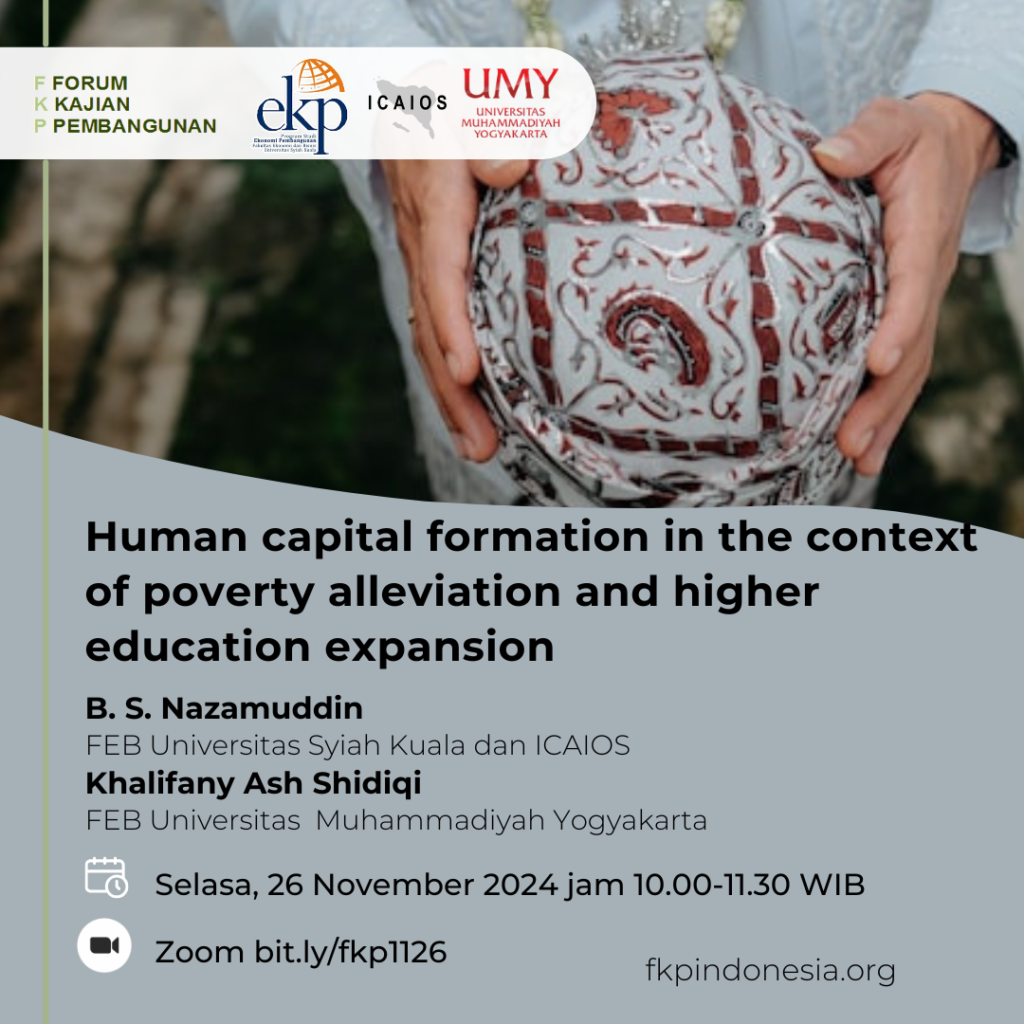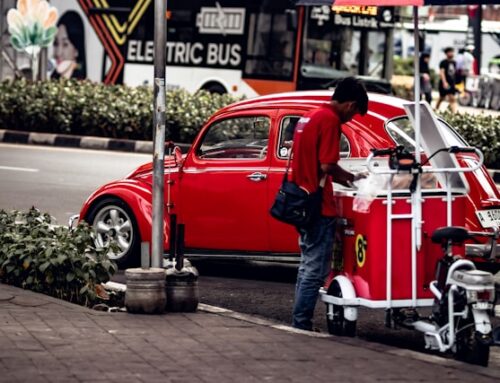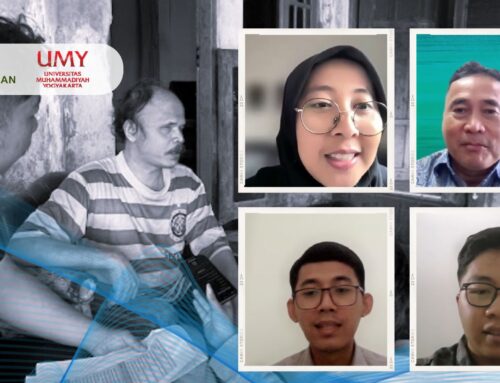This seminar explores how human capital development impacts poverty reduction and social integration in Indonesia, focusing on the role of education. Topics include the need for improved educational quality to alleviate poverty and how higher education expansion promotes inter-ethnic marriages, fostering economic and social cohesion in a diverse society.
Topik 1. Does human capital reduce poverty in Indonesia? Evidence based on System-GMM district dynamic panel data
Pembicara: B. S. Nazamuddin (Program Studi Ekonomi Pembangunan, FEB Universitas Syiah Kuala dan International Centre for Aceh and Indian Ocean Studies/ICAIOS)
Topik 2. Education and ethnic intermarriage: evidence from higher education expansion in Indonesia
Pembicara: Khalifany Ash Shidiqi (Program Studi Ekonomi, FEB Universitas Muhammadiyah Yogyakarta)
Abstrak lengkap ada di bawah.
Selasa, 26 November 2024 jam 10.00-11.45 WIB
Abstrak
Topik 1. Does human capital reduce poverty in Indonesia? Evidence based on System-GMM district dynamic panel data
Pembicara: B. S. Nazamuddin (FEB Universitas Syiah Kuala)
The varying rates of human capital development across regions present a significant challenge for Indonesia. This study examines the roles of education and health in reducing poverty in Indonesia. Utilizing data from 417 districts between 2019 and 2023, we employed the system-GMM approach. Our findings indicate that the contemporaneous effect of the logarithm of the human capital index is negative, suggesting that greater human capital accumulation results in lower poverty within the same period; however, this effect is not lasting unless education and health explanatory variables are considered separately. The impacts of both the logarithm of years of schooling and the logarithm of life expectancy are significant, although their directions differ. This implies that the quality of educational services has not kept pace with the increased accessibility to education. Therefore, priority should be given to improving the quality of education in disadvantaged areas.
Topik 2. Education and ethnic intermarriage: evidence from higher education expansion in Indonesia
Pembicara: Khalifany Ash Shidiqi (FEB Universitas Muhammadiyah Yogyakarta)
In this paper, we analyse the effect of educational attainments on interethnic marriages in Indonesia, a multi-ethnic emerging country. The empirical analysis is based on data from the Java Island obtained from the 2014 wave of the Indonesian Family Life Survey, combined with administrative data about the location and year of establishment of Higher Education Institutions (HEI). To estimate causal effects, we exploit variation in exposure to HEI by birth year and district of residence in an IV/TSLS framework. Specifically, we employ as instrument for education the number of HEI located in a radius of 10 kilometres from the centroid of the district of residence at age 18. The analysis is carried out at the individual level, with separate estimations for males and females. The results indicate that years of schooling, college attendance and completion positively affect the likelihood of exogamy, i.e. having a partner from a different ethnicity. The estimated coefficients are somewhat larger for females than for males, and all the robustness checks provide stable results, supporting their causal interpretation. The effect of schooling does not appear to be heterogeneous depending on parental education, and mixed parental ethnicity. However, it is lower for individuals with Javanese ethnicity compared to those belonging to other ethnic groups. We also analyse potential mechanisms, highlighting that migration/residential location and changes in social norms could be significant channels underlying the causal chain between higher education expansion, educational attainments, and interethnic marriages. Overall, the results reported in this paper point out that the increase in educational attainments induced by the expansion of higher education could contribute to the reduction of ethnic segregation.

Slides and video for past seminars:




